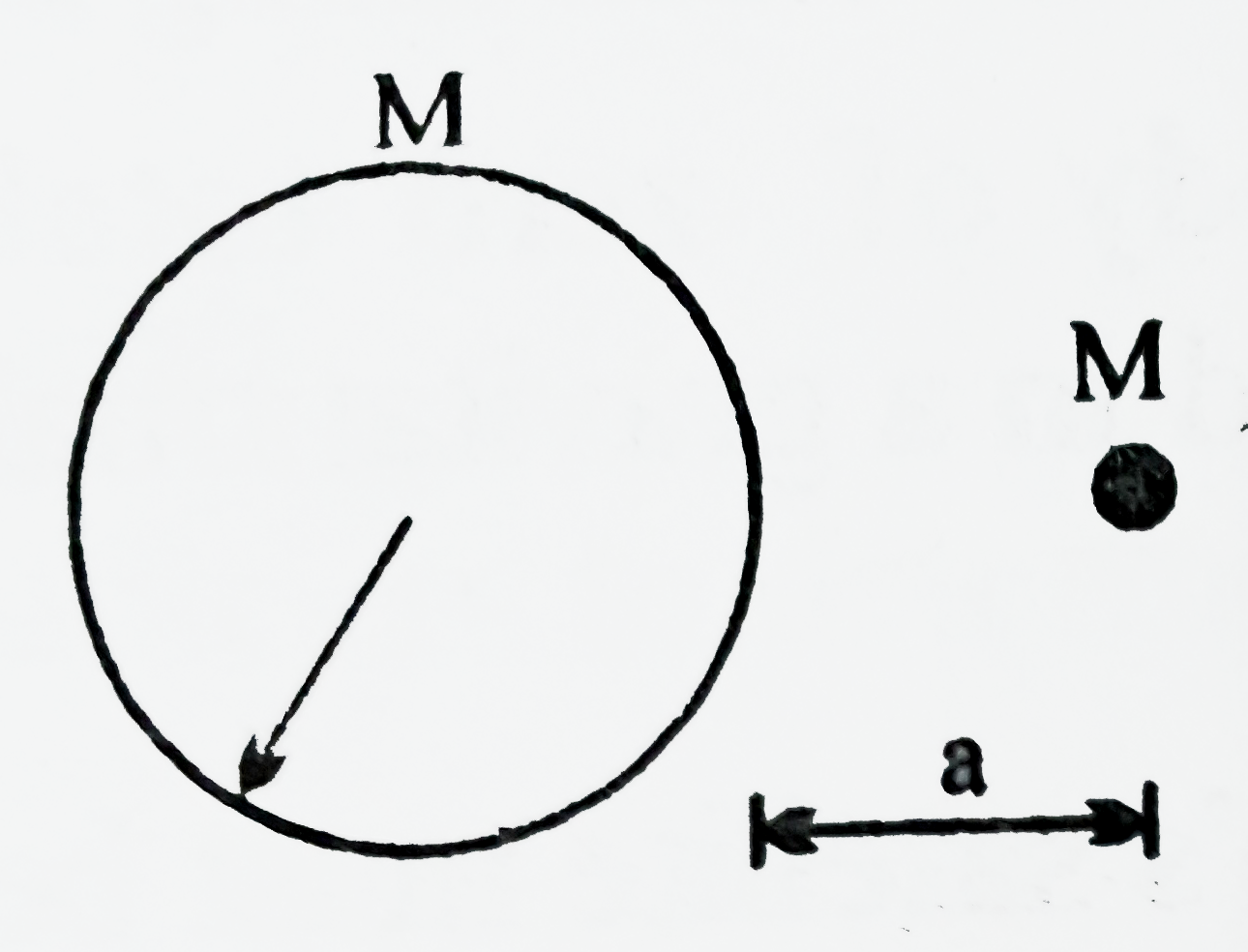A spherical planet far out in space has a mass M0 and diameter D0. A particle of mass m falling freely near the surface of this planet will experience an accelertion due to gravity which is equal to
GM0/D20
4mGM0/D20
4GM0/D20
GmM0/D20
The correct Answer is:C
To find the acceleration due to gravity experienced by a particle of mass m falling freely near the surface of a spherical planet with mass M0 and diameter D0, we can follow these steps:
Step 1: Understand the gravitational force formula
The gravitational force F between two masses M0 (the mass of the planet) and m (the mass of the particle) is given by Newton's law of gravitation:
F=GM0mr2
where G is the gravitational constant and r is the distance between the centers of the two masses.
Step 2: Determine the radius of the planet
The radius r of the planet can be calculated from its diameter D0:
r=D02
Step 3: Substitute the radius into the gravitational force formula
Substituting r=D02 into the gravitational force formula gives:
F=GM0m(D02)2
This simplifies to:
F=GM0mD204=4GM0mD20
Step 4: Calculate the acceleration due to gravity
The acceleration g due to gravity experienced by the mass m is given by the formula:
g=Fm
Substituting the expression for F from the previous step:
g=4GM0mD20⋅1m=4GM0D20
Step 5: Finalize the expression for acceleration due to gravity
Thus, the acceleration due to gravity g experienced by the particle of mass m near the surface of the planet is:
g=4GM0D20
The gravitational force F between two masses M0 (the mass of the planet) and m (the mass of the particle) is given by Newton's law of gravitation:
F=GM0mr2
where G is the gravitational constant and r is the distance between the centers of the two masses.
The radius r of the planet can be calculated from its diameter D0:
r=D02
Substituting r=D02 into the gravitational force formula gives:
F=GM0m(D02)2
This simplifies to:
F=GM0mD204=4GM0mD20
The acceleration g due to gravity experienced by the mass m is given by the formula:
g=Fm
Substituting the expression for F from the previous step:
g=4GM0mD20⋅1m=4GM0D20
Thus, the acceleration due to gravity g experienced by the particle of mass m near the surface of the planet is:
g=4GM0D20
Topper's Solved these Questions
- GRAVITATIONBook:A2ZChapter:GRAVITATIONExercise:Gravitational Potential, Energyand Escape Velocity
Explore 32 Videos
- GRAVITATIONBook:A2ZChapter:GRAVITATIONExercise:Motion Of Satellite
Explore 33 Videos
- GRAVITATIONBook:A2ZChapter:GRAVITATIONExercise:Chapter Test
Explore 29 Videos
- GENERAL KINEMATICS AND MOTION IN ONE DIMENSIONBook:A2ZChapter:GENERAL KINEMATICS AND MOTION IN ONE DIMENSIONExercise:Chapter Test
Explore 30 Videos
- KINETIC THEORY OF GASES AND THERMODYNAMICSBook:A2ZChapter:KINETIC THEORY OF GASES AND THERMODYNAMICSExercise:Chapter Test
Explore 29 Videos
Similar Questions
A man of mass m is standing on the floor of a lift. Find his apparent weight when the lift falling freely. Take acceleration due to gravity equal to g.
View SolutionA planet has twice the mass of earth and of identical size. What will be the height above the surface of the planet where its acceleration due to gravity reduces by 36% of its value on its surface ?
View Solution
Knowledge Check
A spherical planet far out in space has a mass M0 and diameter D0. A particle of mass m falling freely near the surface of this planet will experience an acceleration due to gravity which is equal to
AGM0/D2B4mGM0/D20C4GM0/D20DGmM0/D20A spherical planet far out in space has a mass M0 and diameter D0. A particle of mass m falling freely near the surface of this planet will experience an accelertion due to gravity which is equal to
AGM0/D20B4mGm0/D20C4GM0/D20DGmM0/D20A spherical planet far out in space has mass 2M and radius a. A particle of mass m is falling freely near its surface. What will be the acceleration of that particle ?
AGMa2B3GMa2C2GMa2D4GMa2
The mass of a planet is twice the mass of earth and diameter of the planet is thrie the diameter of the earth, then the acceleration due to gravity on the planet's surface is
View SolutionA particle of mass M is at a distance a from surface of a thin spherical shell of equal mass and having radius a.

View SolutionThe mass and diameter of a planet have twice the value of the corresponding parameters of the earth. Acceleration due to gravity on the surface of the planet is
View SolutionThe mass and diameter of a planet have twice the value of the corresponding parameters of the earth. Acceleration due to gravity on the surface of the planet is
View SolutionThe mass and diameter of a planet have twice the value of the corresponding parameters of earth. Acceleration due to gravity on the surface of the planet is
View Solution

